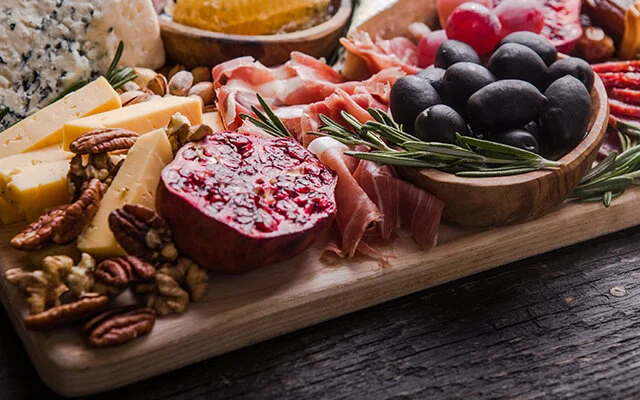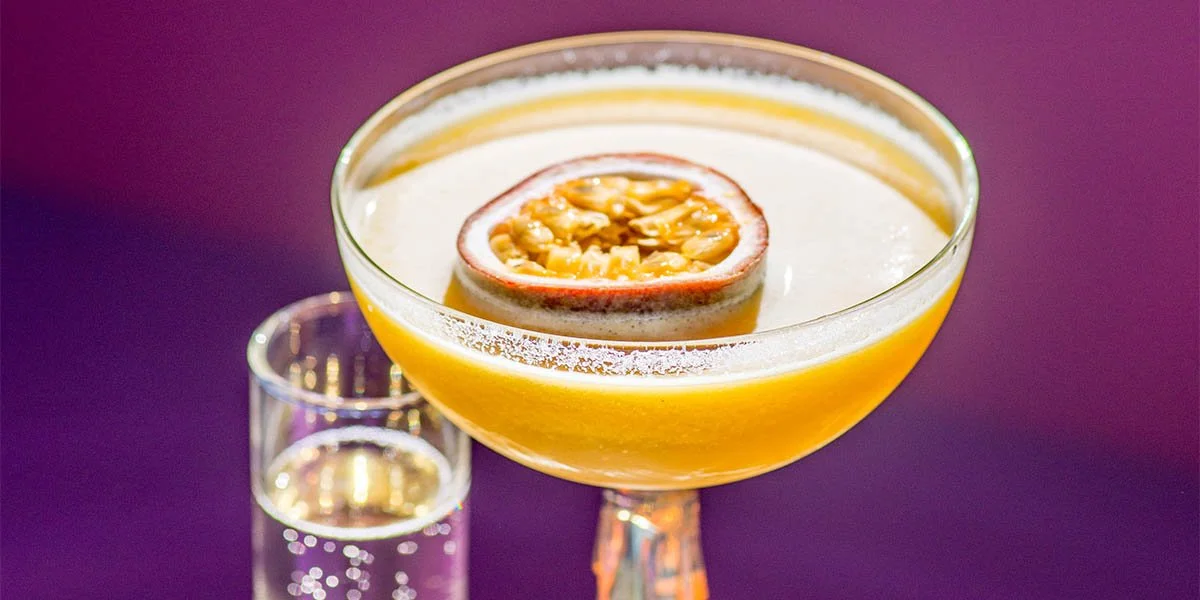One of the best part of visiting Europe is the the ingrained culture of partaking in afternoon “aperitivo,” that delightful afternoon activity designed to help you unwind and begin to prepare the appetite for dinner with a few long, aperitif drinks and a gorgeous antipasto board.
Afternoons in the sun, drinking gin and snacking on delicious nibbles? We’re sold! The good news is that you don’t have to make your way across Europe to enjoy an aperitivo - just grab your favourite gin, follow this easy guide to building your own antipasto board and find a sunny spot to kick back and relax!
The key components to think about when building a show stopping antipasto platter (also called a grazing board) is a variety of contrasting and complimenting textures and flavours, like the crunch of a cracker against a wedge of soft, creamy cheese or a salty bite of an olive with a sweet burst of grapes.
It should all be fairly easy to pick up - no knife and fork required here! - and have pops of bright colour to make it really stand out - think deeply burnished roasted figs and piles of roasted peppers.
Graze Board Building Blocks
Cheese: To really hit ultimate antipasto platter level, try using 4 different types of cheese: a soft cheese such as brie, hard cheese like pecorino, an aged cheese such as cheddar and a blue such as stilton.
Think about what gin you’ll be drinking and how this pairs with the cheese: juniper-forward gins stand up to the sharp bite of hard, aged cheeses, whilst more complex, floral gins will shine against mellow, soft cheeses.
Meats: A natural accompaniment to a platter of cheese is a plate of charcuterie meats with its rich, salty flavours - try European classics such as as prosciutto di parma, mortadella and soppressata.
Meats such as breasola and capicola are rubbed and cured with herbs and spices like juniper and nutmeg, making them a perfect pairing to gin.
Crackers: Your all important vehicle for carrying carrying the above, or enjoying in between.
Crosta & Mollica Fennel Seed Tarrallini are baked to perfection with local olive oil and white wine, adding a whole extra layer of flavour to your grazing, and the fennel plays brilliantly with juniper forward and herbaceous gins.
Olives: Olives are perhaps the original gin o’clock nibble, just as at home inside your martini as in the bowl next to it.
Olly’s Olives have taken the humble olive and spiced it up with a symphony of different flavours, including Chilli & Rosemary, Lemon & Thyme and Basil & Garlic - all perfect for adding a burst of flavour to your antipasto board!
Antipasti: Peperoncini, artichoke hearts, stuffed peppers and sun-dried tomatoes are all great finger foods to play with and pop brightly amongst your spread. Nuts such as almonds, cashews or vibrant pistachios add crunch and flavour to corners of the board.
Vegetables and Fruits: Sticks of raw vegetables like carrots, cucumber and peppers all add an earthy contrast to the stronger flavours, and are hearty enough to scoop up delicious piles of dip. To contrast against the strong, salty flavours be sure to include a few sweet options such as slices of apple, pears and berries, or dried fruits such as apricots and mango.
Dips and Spreads: Luscious pillows of hummus drizzled with olive oil, cooling swirls of mint yogurt or vibrant mounds of muhammara - just lean towards thicker dips to make for easier (and less messy!) eating. Sweet jams and chutneys are a natural choice with cheese, and blossom and lavender honeys are great way to compliment some of your more herbaceous and floral led gins.
Assembling the Board
Now that you’ve picked and chosen the perfect mix of foods, it’s time to assemble! To make a pinterest-worthy antipasto board, there are a few key steps to think about:
Step 1 - The Board: The size and shape are important things to factor, as whilst you want a full, abundant looking board you don’t want to risk losing any precariously balanced nibbles! Different materials and styles of board can add a chic and fun feel to your aperitivo.
Step 2 - The Star of the Show: This might be your large wedges of cheese, or a big bowl of Ollys Olives ready to be nabbed by eager fingers! Pick a couple of spots where your larger items will go and arrange the rest of the ingredients to flow from or around these. If you’re making a large board for a number of people, pre-slice cheeses to allow everything to be picked with ease.
Step 3 - Height and Patterns: Pile rising clusters of grapes next to slices of salami, or line up Crosta & Mollica crackers around tall bowls of dip. Focus on the size and shapes of your different foods, and try to arrange them in neat patterns next to contrasting foods.
Step 4 - Meats: The eye likes to follow continuous lines, so take advantage of the wafer thin ribbons of proscuitto by folding and draping charcuterie pieces to create waves across and around the board.
Step 5 - Sprinkle: Use smaller ingredients such as nuts and peperoncini to fill in gaps around the board. Sprigs of herbs add bright texture as a finishing touch, whilst giving off a gorgeous aroma.















 plus all of your
plus all of your
 See Bronze Benefits
See Bronze Benefits
 plus all of your
plus all of your
 See silver Benefits
See silver Benefits
 plus all of your
plus all of your
 See gold Benefits
See gold Benefits